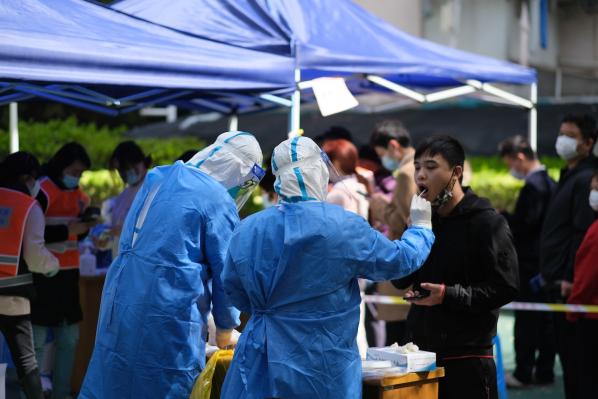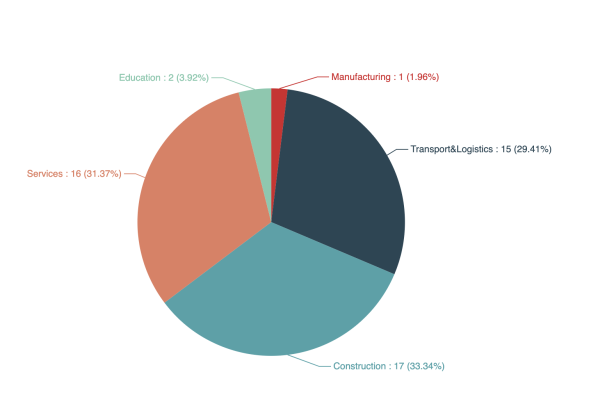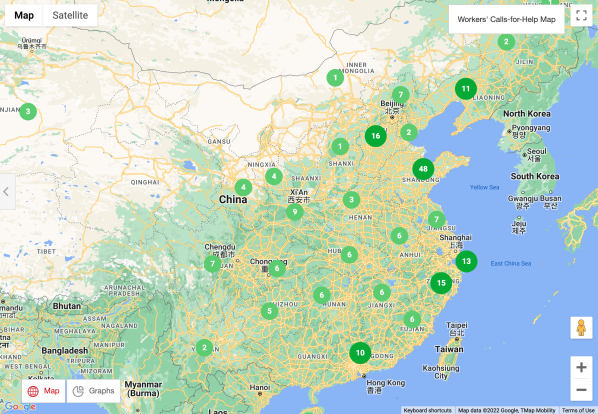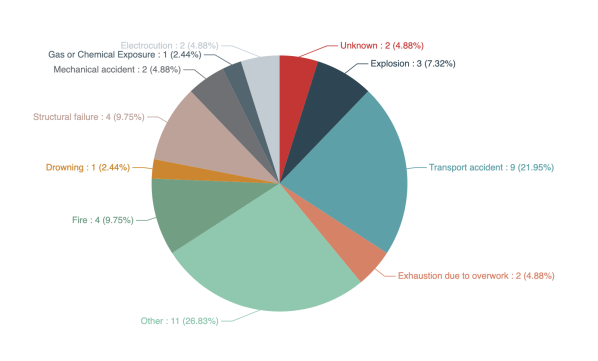
Photograph: Robert Way / Shutterstock.com
Based on the data China Labour Bulletin collected in July 2022 on worker strikes and protests, labour disputes, and workplace accidents, we have found a trend of medical workers seeking wages in arrears, and these cases are concentrated in China’s north-eastern provinces.
But first, don’t miss the new content we’ve published recently on our website:
- Under extraordinary pandemic conditions, local governments continue to side with employers. In this article exploring the topic of wages, we found that China’s lowest-paid workers are taking the brunt of the pandemic economy, with sporadic lockdowns, high unemployment rates, and stagnant wages. Government officials had said at the start of the pandemic that workers would need support, but this has not materialised. Ordinary citizens are also taking notice of the misplaced priority on employers and capital.
- CLB Report: Waiting for Weiquan: Worker rights protection at the All-China Federation of Trade Unions. CLB investigates the role and effectiveness of rights defence (维权 weiquan) departments of China’s official trade union, finding that the union is one of the few sources of legal aid for workers. The union should look beyond the limited scope of outsourcing lawyers and adequately defend workers’ rights, both before and after routine violations occur. Through several case studies, we describe what happens when the union turns workers away and they navigate the legal system on their own, and how efficient and effective the union can be in its rare cases of intervention.
- July 2022 labour news roundup: Widespread heat stroke and successive pandemic waves affect China’s workers. In our roundup of news stories making headlines in China, we cover the following topics: heat stroke leads to worker deaths and injuries, Covid-19 employment discrimination persists, youth unemployment rate at all-time high, civil servants see pay cuts, and the government regulates transport sector to relieve burdens on truck drivers.
Covid-19 pandemic puts stress on medical institutions
According to CLB’s mapping data, service sector worker collective actions and online posts about labour disputes rose last month, and we focus our attention on those in the medical sector in China’s northeast. In Dandong, Liaoning province, a district hospital owed workers five months’ wages and over 20 years of pension payments. Over 100 workers protested on 19 July, and the district health bureau responded that the pandemic has decreased the hospital’s efficiency.
Also in Liaoning province, in Shenyang city, some medical workers assigned to administer PCR tests went on strike and refused to take samples. On 25 July, the workers posted a handwritten note on the testing station to indicate they were striking. They also posted online saying they were owed wages and therefore suspected the outsourced company was improperly using funds from the health department.
In Changchun, Jilin province, doctors posted online on 23 July about their labour dispute with a third-party company, saying they were owed wages and neither the company nor the hospital where they worked would take responsibility.
In none of these actions did China’s official trade union step in, even when local authorities were willing to negotiate with workers in Dandong but used bad faith arguments to support the delayed wages. Rather, local unions were busy promoting a political sloganeering campaign about being “at war” with the pandemic and investing over 1 million yuan on photo ops, sending cake coupons to medical workers, and sending vegetable baskets to “model workers.” Rather than random provision of food, what workers truly need is an advocate for their wages to be paid according to the law and for their health and safety to be protected on the job.
Analysis of CLB’s Data



